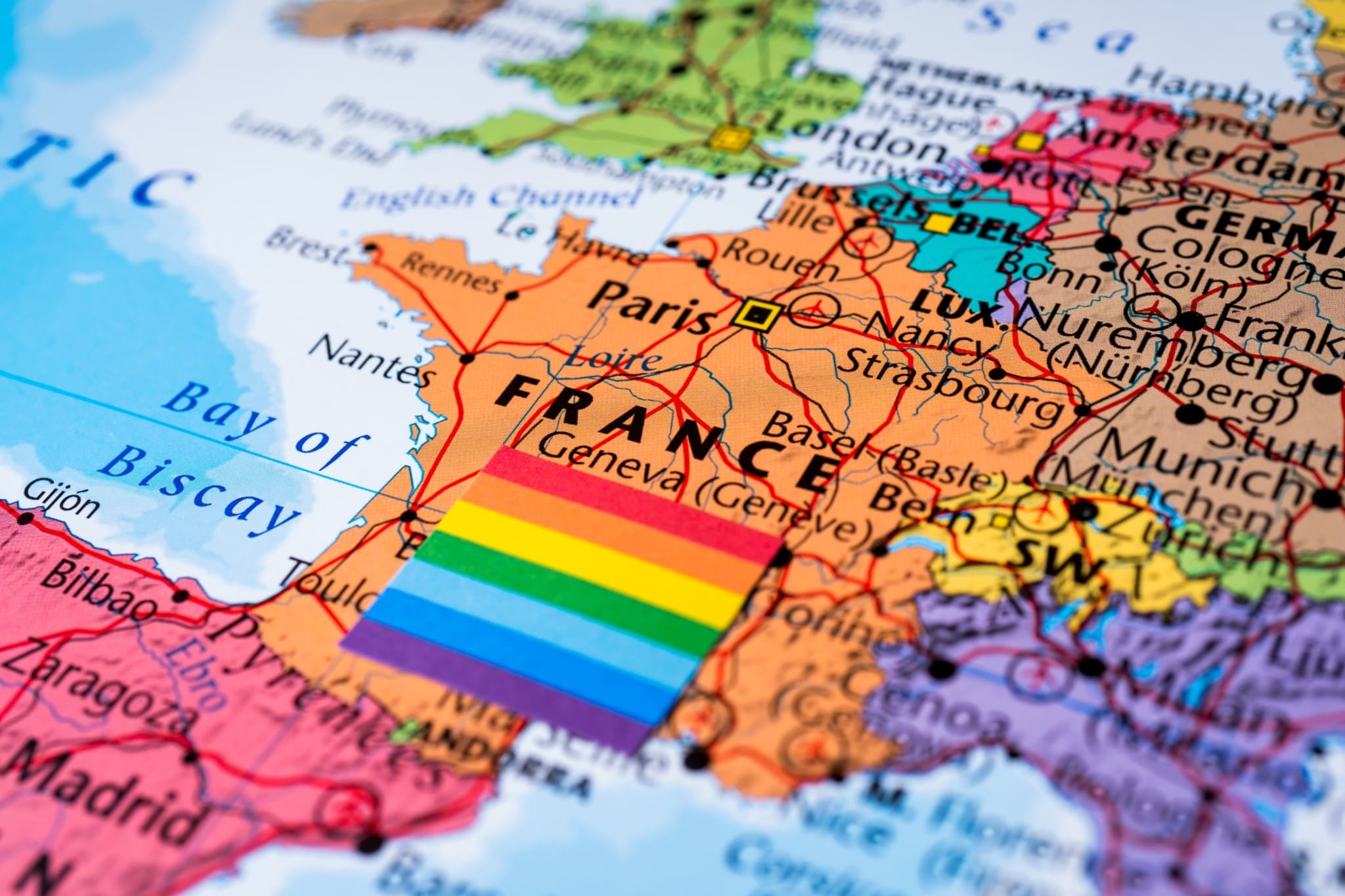The French parliament has outlawed any individual or organization from exerting any pressure on a person to have a heterosexual sexuality, including pressure exerted by parents on their children. In addition, the French justice system has just ordered that men should be allowed to appear as the second mother of their children on birth certificates if they wish so.
France’s new law, which was originally said to be against “conversion therapies,” is actually titled the “Law of 31 January 2022, forbidding practices aiming at modifying a person’s sexual orientation or gender identity.” It prohibits “repeated practices, conduct, or speech intended to change or suppress a person’s actual or perceived sexual orientation or gender identity.”
[pp id=17646]
The penalties for offenders are €30,000 or €45,000 and two or three years’ imprisonment depending on whether the “victim” is an adult or a minor. This includes parents who try to discourage their children from engaging in “sex change” practices or treatments and who seek to encourage them to take the path of what is a more healthy and normal sexuality in their eyes.
One safeguard has been added to the original bill filed by one of Emmanuel Macron’s MPs, as there is no offense when “repeated remarks only invite caution and reflection, particularly in view of his or her young age, on the part of the person who is questioning his or her gender identity and who is considering a medical course of action leading to a sex change.”

However, this leaves much room for interpretation by judges who may, “when the offense is committed by a person having parental authority over the minor,” decide “on the total or partial withdrawal of parental authority.” Thus, children may be removed from their parents’ care if the latter seek to encourage them to accept their biological sex and have a heterosexual sexuality.
It is worth noting that, in France, encouraging children to see themselves as “transgender” or homosexual and to consider a “sex change” procedure is not punishable by any law.
[pp id=6632]
The law passed in January also added the notions of “sexual orientation” and “gender identity” to that of “sex” in the paragraph of the Code of Criminal Procedure that allows associations subsidized by the French state to prosecute people they consider guilty of discrimination. This means that, from now on, any alleged discrimination based on sexual orientation or “gender identity” authorizes these associations to sue citizens for damages, which is a French specificity that strongly limits freedom of expression.
All political parties in the French Parliament unanimously voted in favor of this law, including Marine Le Pen’s National Rally in its drive to strengthen its “respectability” in the run-up to the presidential elections in April and the legislative elections scheduled for June. On the day the law was enacted, Éric Zemmour, the other right-wing candidate against Emmanuel Macron for the April presidential election, tweeted: “The ‘macronie’ proposes to teenagers to change their sex as early as 13 years old. I will be the President who puts an end to this ideological nightmare.”
[pp id=25944]
A few days after the entry into force of this totalitarian law called for by the LGBT lobby, the Court of Appeal in Toulouse, in the southwest of France, rendered a judgment that will also serve as a landmark case. The judgment recognized a man in his fifties as the mother despite his child being conceived in a natural way, using his male sexual organs. The court agreed the man could be labeled the “mother” because he considers himself a “transgender woman,” and had registered his “sex change” with the Civil Registry.
“The court has issued a ruling that enshrines a major advance for the fundamental rights of transgender people,” the man’s lawyer rejoiced.
In a sign that the state is fully behind these progressive ideological positions, the French Public Prosecutor’s Office, acting under the authority of the Ministry of Justice, supported the man’s request, with the only reservation that a mention of the sex change in the civil status of this “second mother” be made in the margin of the birth certificate of the man’s daughter. However, even this reservation was rejected by the Court of Appeal in Toulouse.
[pp id=13479]
“This was an extremely important point: such a mention would have stigmatized the child and the parent because of trans-identity,” the plaintiff’s lawyer wrote in praise.
The French left-wing newspaper Libération, a great supporter of gender ideology, tells the story of this mother-man as follows:
“Claire was born in a man’s body in 1968. Two first children were born from his union [with a woman], in 2000 and 2004. In February 2011, Claire obtained in court to have her civil status changed to correspond to her gender identity: female. While she still had her male attributes, she conceived a baby girl, in 2013. Shortly before the child’s birth, Claire established before a notary a ‘prenatal recognition of child, which she declared to be of maternal – albeit not gestator – nature.’ The couple then wished to have this recognition transcribed on the child’s birth certificate, but the civil registrar in Montpellier was opposed to it, arguing that only adoption could allow Claire to have her filiation link recognized. Such a solution was not acceptable for the family, who then began their long legal battle.”
The next step in the French liberal-leftist revolution will probably be to make the use of surrogate mothers legal, so as to allow men who are “married” to each other to conceive children. Already, the French public media is intensifying the promotion of this practice after the bioethics law passed last year allowed, as Emmanuel Macron wanted, women who are “married” to each other to conceive children through medically assisted reproduction (artificial insemination or in vitro fertilization).





